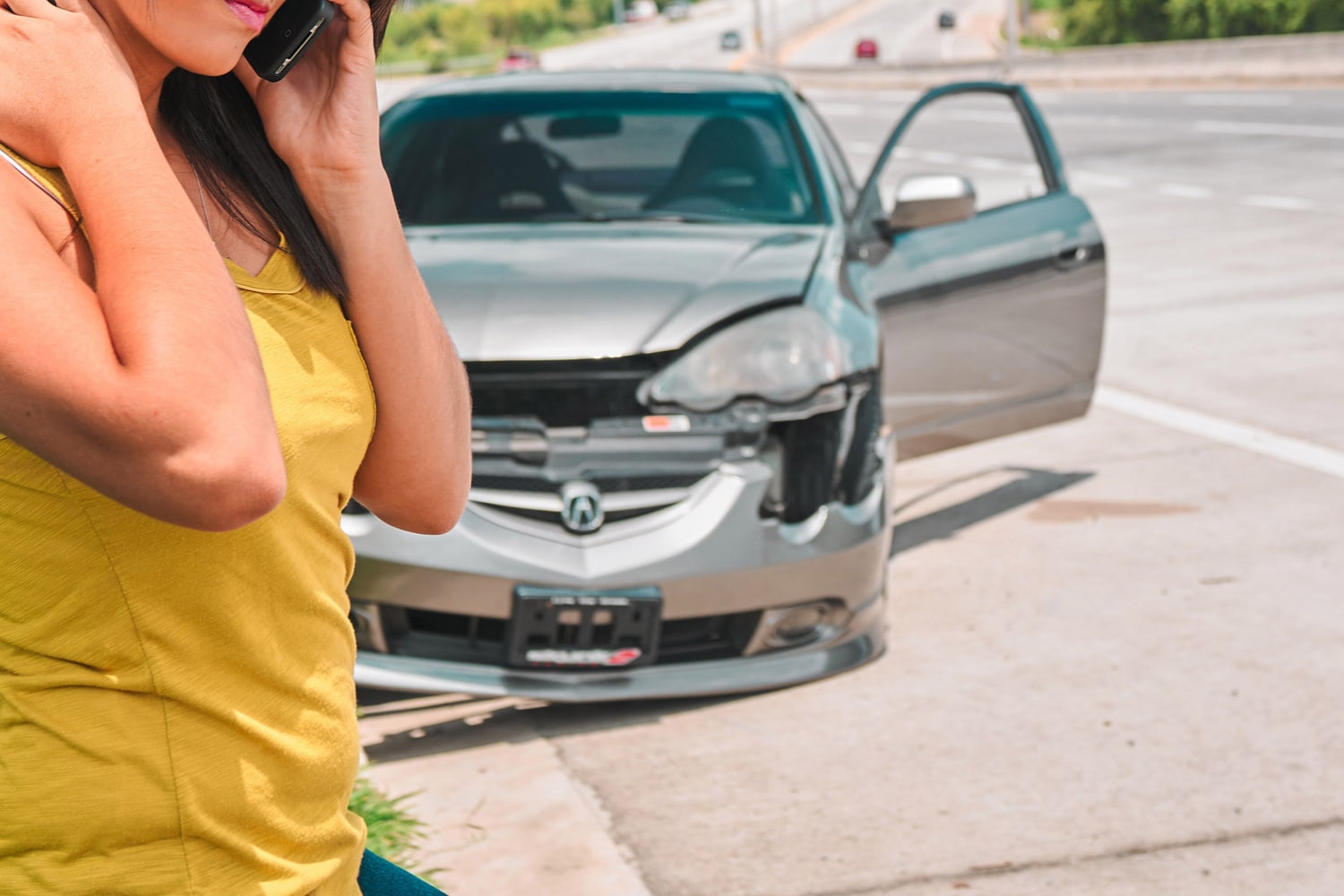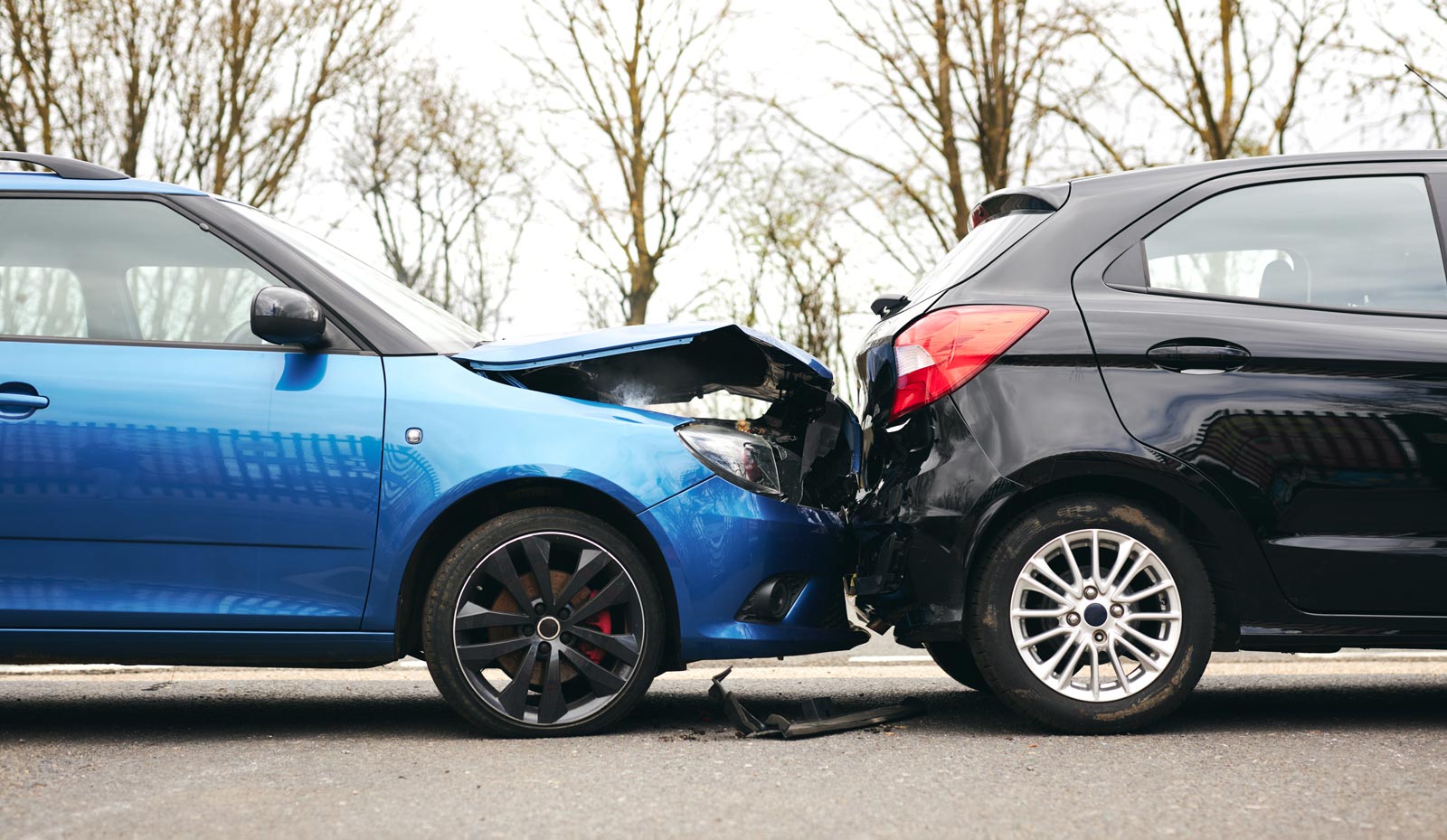You see delivery drivers all over, running from one destination to the next. But when the UPS truck crashes into you, they could make the road to your settlement a lot more complicated.
There were 2,759 crashes involving UPS drivers over the last two years. Over 980 of those involved an injury, which adds up to lots of unexpected costs. Car accidents can be tough enough to manage between drivers, but things could become even trickier when it becomes bigger than the two of you.
Learn more about the complexities of commercial vehicle claims and what you should expect after a negligent driver injures you.
Commercial Vehicle Crashes Are More Complex Than the Typical Fender Bender
While even a “minor” crash can lead to severe injuries, commercial vehicle crashes pose additional challenges and opportunities. Here are a few factors your UPS accident lawyer might take into consideration during your claim.
Larger Policy Limits
UPS (United Parcel Service) and most other major delivery companies carry significant insurance policies. It currently carries $1,000,000 auto and supply chain policies on its vehicles. The company also carries excess insurance that steps in if the million-dollar policies are insufficient. That means that it can adequately cover most injury claims—even if they are catastrophic.
Aggressive Defenses
However, with larger insurance policies, comes more aggressive legal tactics. Even if your case seems simple at first glance, you should expect that UPS and its defense lawyers will fight you tooth and nail.
To get fair compensation, you will likely need to work with an experience truck accident lawyer who understands UPS’ tactics and can combat them.
You Might Have Multiple Legal Claims
While not all delivery drivers are company employees, most UPS workers are. That means you will likely file your personal injury lawsuit against the company, not the individual driver. However, that’s just the beginning.
Deliver companies can contribute to crashes in other ways. They might improperly train their employees or hire unqualified or dangerous drivers. Other times, they pressure drivers to break safety rules or improperly maintain their vehicles. Every negligent act strengthens your case against UPS.
You might also discover that other parties contributed to your crash. For example, if improper loading contributed to the wreck, you might have a claim against the company that packed the truck’s cargo. Or, if a defective truck part led to the crash, you might file a product liability claim against its manufacturer.
A skilled truck accident lawyer will identify every legal claim you have—and every insurance policy that covers your losses.
Federal Trucking Laws Might Apply
In addition to Texas’ rules of the road, some UPS trucks must follow federal commercial vehicle rules set by the FMCSA (Federal Motor Carrier Safety Administration). If you can prove that a driver broke these rules, it will strengthen your case.
- Hours of service: Drivers can only drive a certain number of hours within a given period. No marathon sessions or skipping downtime. Companies can get in trouble for pushing their workers too hard.
- Training: Operators need to have the right skills for operating their vehicles. The FMCSA can require classes, training, and tests need to be in order before UPS lets them get behind the wheel.
- Licensing: Drivers will also need to have an up-to-date license. Expired documents, suspended licenses, or failed drug tests can all lead to sidelined workers. If the company still lets them work, they could be the ones accountable.
- Maintenance: Trucks need to be in good enough condition for safe service. While the driver may need to perform regular checks, the company will also need they stay on top of maintenance and address major repairs.
To identify these violations, you will need to study UPS’ logbooks and records. However, you only have a limited time to preserve these records. Otherwise, the company can legally destroy them. Your lawyer should act quickly to collect UPS’ logs, employee records, and maintenance reports.
Look for GPS Data and Other Evidence
Many commercial vehicles have sophisticated electronics on board. These systems track the truck’s every move and might record dashcam footage. An expert can help you pinpoint hidden causes for your crash—like running a red light, speeding, drowsy or distracted driving, or federal trucking violations.
The team at Crosley Law has successfully used this data in commercial vehicle cases, resulting in multi-million-dollar settlements.
RELATED: A Grieving Mother Clears Her Daughter’s Name: Amanda and Jane’s Story
Ask Yourself These 3 Questions After a UPS Crash
1. Who Caused the Accident?
As we mentioned above, you probably will file your personal injury claim with UPS’ insurance company, not the driver’s personal policy. Known as vicarious liability, an employer is often legally responsible for an employee’s on-the-job negligence.
During the early stages of the investigation, your lawyer will assess the accident report, witness statements, company records, and even dashcam footage to identify exactly who was to blame.
When Isn’t UPS Responsible?
Grey areas can pop up in Texas law. Just because the accident happened with an employee in a UPS truck doesn’t mean the corporation has to handle the fallout:
- After hours: A driver that still has the keys to the truck after their shift could be on their own. The employer might not be responsible if the driver was running personal errands way outside their working hours and job duties for UPS.
- Off-duty: While maybe not as clear-cut as a taxi driver flipping the switch for their off-duty light, drivers might not always be on the job when in the truck. Visiting the bank or picking up breakfast before their shift starts could move liability away from UPS.
- Unpaid breaks: Breaking up the workday with a breather could also complicate things. UPS might be off the hook for covering your expenses if the trucker is getting lunch while off the clock.
If you have questions about who is responsible for your injuries, contact a UPS accident lawyer right away.
2. What Caused My Motor Vehicle Accident?
Understanding what led to your accident is often the first big hurdle of the process. Car accidents can happen for any number of reasons, but it’s important you know what caused yours:
- Breaking laws: This one might be on the truck driver if they were breaking the law. Texting while driving, running a red light, or making an illegal turn could all rest fault on the driver’s shoulders.
- Careless driving: Driving habits can be legal but still dangerous to others on the road. Driving too slowly, following too close, or not paying attention could all put you at risk without breaking any specific rules.
- Faulty equipment: A driver might have to perform regular inspections. If they miss a problem, do not report it, or use a truck that’s out of service, they could be at fault. From broken mirrors and windshield wipers to worn tires and brakes, plenty can go wrong on vehicles that see so many miles.
3. Where’s the Evidence?
RELATED: How to Prove 5 Overlooked Causes of Car Accidents
What Is My UPS Accident Claim Worth?
Once you know who you’re seeking the recovery from, it’s time to put a number to all the costs that stemmed from the UPS truck accident. Cases with serious injuries can balloon into the millions for damages, but even minor accidents can cost tens of thousands of dollars. From the moment of the accident to well into the future, it can be difficult to outline every loss:
- Medical expenses: The ambulance ride, surgeries, and medications can quickly add up to a large sum. You’ll likely have to show proof of everything you endured after the accident.
- Ongoing medical treatment: While life-saving care can be pricey, continuing treatments often have a long tail. Doctor’s visits, physical rehabilitation, and medical equipment could all be necessary after your crash.
- Loss of life: Delivery trucks and tractor-trailers could come with a lot of size and weight, and the force of their impact can lead to fatal accidents. Losing a loved one isn’t easy, and recovering, both emotionally and financially, is essential.
- Grief and distress: Car accidents can take a psychological toll on those involved. You may no longer be able to enjoy things like you did before or could suffer from more serious mental issues. Head injuries can lead to long-lasting traumas like depression or posttraumatic stress disorder.
- Lost income: If you are unable to work, that missing money could add to your claim. It’s important to note how long you’ve been out of work and possible promotions or raises you didn’t get because you couldn’t get to your job.
- Damaged property: Your car is probably worse off from the accident, just like you. Vehicle designers might work with impacts in mind, but that doesn’t mean they still work the same afterward. Damaged frames, crumpled bodies and broken engine parts can all be incredibly expensive.
Crosley Law: San Antonio’s Trusted UPS Accident Attorneys
Identifying who was responsible for what is no small task, especially when the accident involved a UPS driver. Confronting UPS, one of the largest delivery companies in the country, can come with a greater upside of cost coverage. But there can also be the downside of facing a team that’s skilled at saving the company money. You may have a long, hard road ahead of you, even with the most compelling evidence. This is why you should have personal injury attorneys with experience guide you along your way.
Crosley Law can fight for injured drivers that need compensation following an accident with a UPS employee. From assigning fault to making your case, we help victims work toward the recovery they deserve.
Call 210-LAW-3000 | 210-529-3000 or use our simple online contact form to schedule a free consultation.
References
Federal Motor Carrier Safety Administration. (2021, May 28). Safety Measurement System. https://ai.fmcsa.dot.gov/SMS/Carrier/21800/Overview.aspx
49 U.S.C. § 396 (2020).
Texas Department of Insurance. (2021, May 6). Automobile insurance guide. https://www.tdi.texas.gov/pubs/consumer/cb020.html
Tex. Bus. & Com. Code § 33 (1995)
National Safety Council. (2019). Guide to Calculating Costs. https://injuryfacts.nsc.org/all-injuries/costs/guide-to-calculating-costs/data-details/
Tex. Bus. & Com. Code § 41 (2015)
Joah W., Alyssa R., Alice K., Benjamin S., and Dean K. (2015, January 22). Associations Between Motor Vehicle Crashes and Mental Health Problems: Data From the National Survey of Adolescents-Replication. Journal of Traumatic Stress, 28(1), 41-48. doi:10.1002/jts.21983. https://www.ncbi.nlm.nih.gov/pmc/articles/PMC4347895/
Verification of insurance. (2021). UPS. Retrieved from https://www.ups.com/us/en/help-center/legal-terms-conditions/verification-of-insurance.page#contentBlock-11
The content provided here is for informational purposes only and should not be construed as legal advice on any subject.









